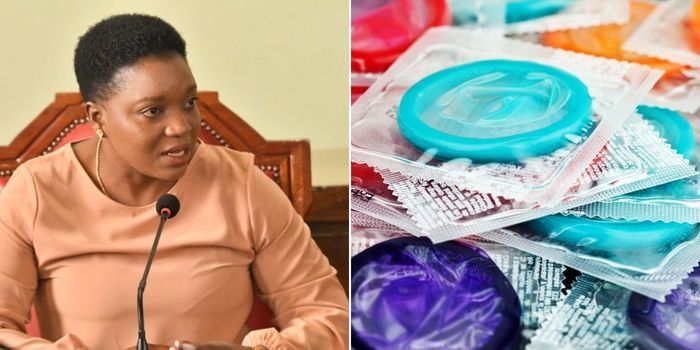National Aids Control Council has distributed 3,157,900 condoms in non-health settings in the last six months, Health Cabinet Secretary Susan Nakhumicha has revealed.
In a report to the Departmental Committee on Health on the State Department for Medical Services Budget Estimates for the Financial Year 2024-25, Nakhumicha said the National AIDS and STI Control Programme (NASCOP) saw 1,207,482 clients on Ant-Retroviral Treatment.
The CS added that the Department of Family Health saw a proportion of 38.8 per cent of women of reproductive age received family planning commodities.
In January 2023, Nakhumicha dismissed reports that there was a shortage of condoms in the country.
The CS noted that the country had 38 million pieces of condoms in store.
“I would like to clarify to Kenyans that we do not have a shortage of condoms in the country. As a matter of fact, we have 38 million pieces of condoms. You can see that we are overstocked,” Nakhumicha said.
She said the shortages being reported in various regions were as a result of hitches in the distribution process from the Kenya Medical Supplies Authority (Kemsa) stores.
She added that NACC also generates distribution lists that are also sent to Kemsa.
In her report, Nakhumicha said the State Department for Medical Services remains committed to working with the Parliament and other stakeholders to ensure the provision of quality, accessible and affordable healthcare services to Kenyans is realised.
“We continue to reiterate the need to revise upwards the budgetary ceiling for the State Department if we are to deal with funding challenges we continue to experience,” she added.
She said one of the priorities of the State Department is to ensure commodity security for family health and strategic health programmes covering TB, malaria, family planning, HIV/AIDS and nutrition.
Nakhumicha added that healthy citizens spur economic growth since there are more people to conduct effective activities in the workforce.



